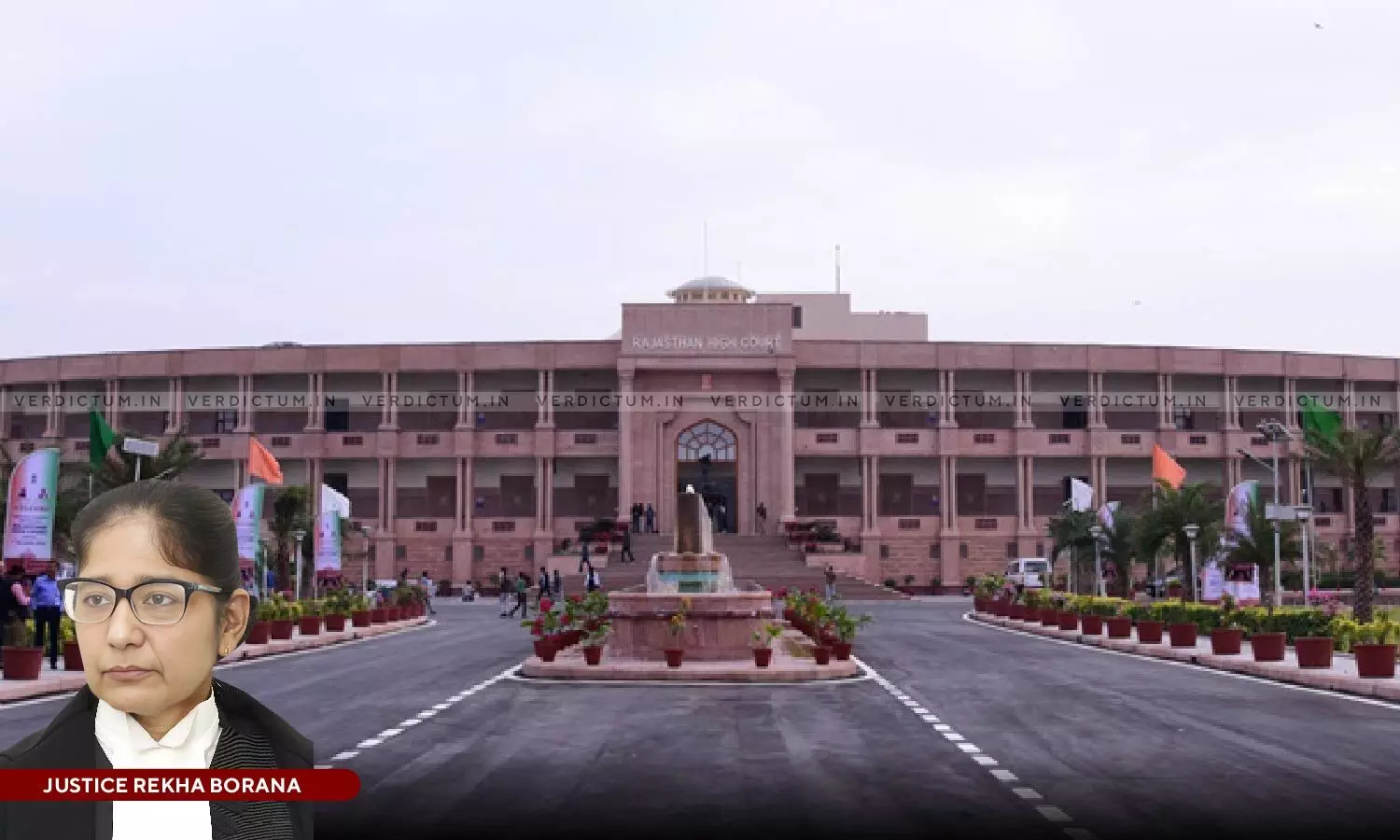
No Averment As To Which Term Of Agreement Has Been Breached: Rajasthan HC Holds That Dispute Is Foreign To Agreement, Refuses To Appoint Arbitrator Under Section 11
 |
|The Rajasthan High Court rejected an application to appoint an arbitrator on not finding any dispute that can be said to be “arbitrable” so as to be referred to arbitration while observing that Arbitration presupposes a ‘dispute’ and the dispute ought to have arisen out of the agreement governing the parties.
The Court held thus while noting that a dispute, foreign to the agreement cannot be governed by the Arbitration clause and cannot be referred to arbitration in terms of the said clause.
The Court was hearing an application under Section 11(6) of the Arbitration and Conciliation Act, 1996 for the appointment of an independent and impartial Arbitrator for the resolution of the disputes that have arisen between the parties.
The bench of Justice Rekha Borana observed, “Arbitration presupposes a ‘dispute’ and the dispute ought to have arisen out of the agreement governing the parties. A dispute, foreign to the agreement as entered into between the parties, cannot be governed by the Arbitration clause and cannot be referred to arbitration in terms of the said clause.”
Advocate Shreshtha Mathur appeared for the Appellant and Advocate Akshiti Singhvi appeared for the Respondent.
Brief Facts-
The Indian Oil Corporation awarded an LPG distributorship to a firm in Jodhpur and entered into an agreement. Despite efforts, the firm could only distribute 1500-2000 cylinders, while nearby agencies had 25,000-30,000 connections, causing significant losses. The firm requested additional connections, but the Corporation did not respond.
Invoking the arbitration clause in the agreement, the firm served a notice. With no response, the firm filed for the Court to appoint an Arbitrator.
The Court thought that the dispute as raised does not even fall within the ambit of the terms/conditions of the agreement.
According to the Court, the agreement in question nowhere specifies that a distributor is mandatory to be granted a specified number of connections, nor does the agreement prescribe for any obligation on the part of the respondent corporation to transfer/allot a specific number of connections to a particular distributor.
Further, the Court emphasised that not a single averment in the complete application has been made by the applicant as to which term of the agreement has not been complied with or has been breached by the respondent corporation.
The Court mentioned the decision of the High Court in the matter of BCC-Monalisa (JV) vs. Container Corporation of India Limited; ARB.P. No.933/2022 and I.A No.5219/2023 and quoted, “the court even in this limited jurisdiction under Section 11, could conduct a preliminary enquiry to find out if the claims are ex facie arbitrable. This court is not relegated to a post office to be completely oblivious to the obvious legal infirmities in the request for appointment of arbitrator. It is not enough for the Petitioner to say that let the arbitrator decide all the jurisdictional issues. The Petitioner must cross the minimum threshold that is required in law as stated above, before the court can act upon such request. Respondent, unless it concedes to such request, cannot be mechanically burdened with the arbitration proceedings, and the costs attached thereto, even for adjudication of jurisdictional issue, that is otherwise apparent at the stage of Section 11 enquiry itself.’’
The Court observed, “Without any breach/non-compliance/non-adherence of conditions of the agreement having been averred, it cannot be observed that a question of dispute or difference has arisen out of the agreement in question.”
Accordingly, as per the Court, there is no dispute as such which can be said to be ‘arbitrable’ and can be referred to arbitration in terms of Clause 36(a) of the agreement.
Finally, the Court dismissed the application.
Cause Title: M/s Blue City Indane v. Indian Oil Corporation (Neutral Citation: 2024:RJ-JD:20076)